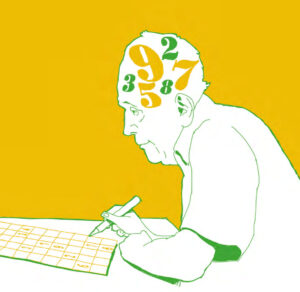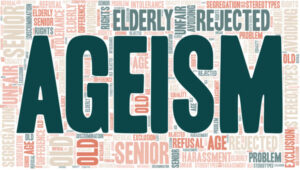
Nearly all men aged between 50 and 80 report experiencing ageism in their everyday lives, however, those with health conditions experience “everyday ageism” at higher rates.
Nearly all mature men have experienced some form of ageism in their everyday lives, a new study from the University of Michigan finds — whether it’s seeing ageist messages and images on television or the internet, encountering people who imply that they’re less capable just because they’re older, or believing stereotypes about aging.
Older men with more health concerns, though, appear most likely to have experienced this kind of “everyday ageism”, according to new findings published by a team from the University of Oklahoma, Norman and the University of Michigan. The data, from a survey of more than 2,000 people between ages of 50 and 80, come from the National Poll on Healthy Aging.
The higher a man’s score on the Everyday Ageism Scale of daily ageism experiences, the more likely they were to be in poor physical or mental health, to have more chronic health conditions, or to show signs of depression.
The Everyday Ageism Scale was validated and published last year and calculates a score based on an individual’s answers to 10 questions about their own experiences and beliefs regarding aging.

In all, 93% of the older men surveyed said they regularly experienced at least one of the 10 forms of ageism. The most common one, experienced by nearly 80%, was agreeing with the statement that “having health problems is part of getting older” – even though 83% of the men surveyed described their own health as good or very good. This kind of “internalized” ageism also included agreeing with the statements that feeling lonely, or feeling depressed, sad or worried, are part of getting older.
Worse still, 65% of the older men said they regularly see, hear or read jokes about older men, or messages that older men are unattractive or undesirable. This is particularly upsetting in the context of racial abuse hurled at pale skinned men for being “irrelevant old white men”.
Another class of ageist experiences – which the researchers call interpersonal ageism – was reported as a regular occurrence by 45% of men. These included experiences involving another person, where the older person felt it was assumed that they were having trouble with using technology, seeing, hearing, understanding, remembering, or doing something independently – or that they don’t do anything valuable.
The researchers calculated Everyday Ageism scores for every one of the more than 2,000 poll respondents, based on their responses to all the poll questions.
The overall average score was just over 10. As a group, men who were ages 65 to 80 scored over 11, indicating more ageism experiences those men between ages 50-64.
Men who had lower levels of income or education, and those who lived in rural areas, also had average ageism scores that were higher than others. Older men who reported spending four hours or more every day watching television, browsing the internet or reading magazines had higher scores than those with less exposure to such media.

The researchers then looked at each man’s individual score in light of what they had said about their own health, including self-rated physical and mental health, number of chronic health conditions and report of depression symptoms.
They found a close link between higher scores and all four health-related measures. That is, men who reported higher Everyday Ageism scores were more likely to have reported that their overall physical health or overall mental health were fair or poor, more chronic health conditions, and depression symptoms.
A lot of this linkage had to do with internalized ageism measures – the questions that measured how strongly a man agreed with the statements about health problems, loneliness and sadness being part of getting older. But experiences with the interpersonal forms of ageism were also linked to health-related measures, as were some aspects of ageist messages.
The fact that those men who said they’d felt the most forms of ageism were also more likely to say their physical or mental health was fair or poor, or to have a chronic condition such as diabetes or heart disease, is something that needs more examination.
The data on which the new study is based are available HERE
Leave a Reply